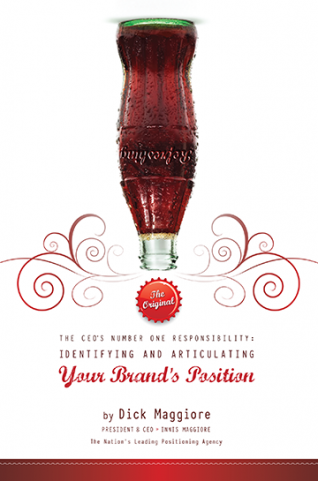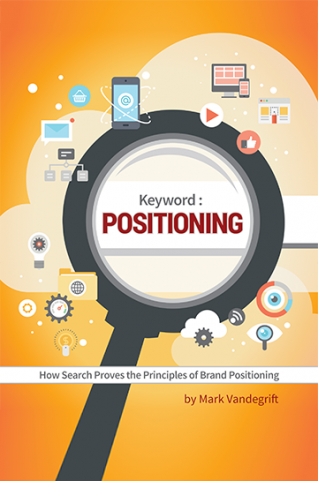Jack Trout and Al Ries inspired a generation of advertising and marketing executives and creative directors when they published “The 22 Immutable Laws of Marketing,” and for good reason.
Their immutable laws of marketing, as we have learned over the past two installments of this series, remain relevant. Even though our analysis showed a few small cracks, the laws still deserve their “immutable” adjective. Today, we continue our review and discussion.
No. 11: The Law of Perspective
Retailers often promote “sales” during which customers can buy at reduced prices. In the short term, sales can increase business.
But putting products and services on sale can become addictive. Sales actually can decrease buying activity over the long haul, because retailers are educating their customers not to buy at regular prices. Instead, they wait for the sale.
We see a similar sales spike with line extensions that don’t align with the idea the brand owns in the minds of prospects and customers. But in the long term, sales tumble — and not only with the line-extended product, but also with the original product.
Donald Trump line extended his brand, his name, on many products and services. Most have not done well. Those associated with his construction and development have fared better (with the exception of Atlantic City, which might have failed for other reasons).
The message of No. 11: Beware of discounting and line extending.
No. 12: The Law of Line Extension
This is the most-violated of the 22 immutable laws.
It’s OK to line extend. Campbell’s Soup can come out with as many condensed canned soups as it wishes. That’s what the brand stands for, basically, the idea of mediocre canned soup. Nothing at all wrong with that. They’ve been doing just fine since 1869.
But they can’t come out with premium canned soups. Progresso owns the idea of premium canned soups. Campbell’s has been line extending outside of its mediocre canned soup idea for years. They have not been successful doing so.
What they should do is us use a new brand name rather than put the Campbell’s name on the can or jar.
They should have learned their lesson. Many years ago, Campbell’s came out with Campbell’s ketchup. It won the blind taste tests. But when they went to market, it failed because people thought it was orange and runny, like their tomato soup. It wasn’t orange and runny.
A-1 steak sauce put its name on A-1 poultry sauce. It didn’t work. Consumers said A-1 is steak sauce. They pulled it off the market. Marketing is a battle of perceptions, not products. There was nothing wrong with A-1 poultry sauce just as there was nothing wrong with Campbell’s ketchup — except the name!
Someone has to take charge of brand management.
No. 13: The Law of Sacrifice
You can’t be all things to all people. You have to give up something to get something.
Think of FedEx. When it promoted all its services to everyone, it lost a lot of money. When it focused on shipping small packages overnight, it became the largest overnight shipper in the world.
Kraft stands for everything. Take mayonnaise. Hellman’s has twice the market share of Kraft. Focused specialists tend to beat generalists. Kraft does have a product that has the major market share in the category, Philadelphia Cream Cheese. Notice that the Kraft name on the package is missing.
A wider net does not catch more customers.
No. 14: The Law of Attributes
Have you heard this line? “Rolling around in the mud of the marketplace.”
We love it. It’s about understanding the competition and what ideas they already own in the minds of customers. It’s about understanding what attributes are meaningful and relevant with your customers. It’s about understanding the trends in your industry. Finally, it’s about being brutally honest about what idea, what attribute your company can deliver to the marketplace.
Those are the four Cs: competition, customer, context (your marketplace) and your company (your own). The chosen attribute has to make sense with all four. It’s quite a challenge.
In the end, you’re looking for an attribute that is different from what your competition is offering, the more the better. You’re looking for an attribute that your customer will value, the higher the better. You’re looking for an attribute that makes sense with where the industry is trending. And finally, you’re looking for an attribute about which your company is passionate.
Finding the right attribute is close to the Holy Grail.
No. 15: The Law of Candor
Think about relationships with the people in your life. Have you noticed that when you admit a negative, they’re more open to giving you a positive?
Same is true with a brand. Listerine says, “The taste you hate twice a day.” There is something disarming about that. Plus, it reinforces how strong the taste is. That strong taste must mean that it really kills germs!
“With a name like Smucker’s, it has to be good.” How many companies would make fun of their name? The Smucker family did. In part, that’s why they’re No. 1 in jams and jellies. Admit a negative with a twist to a positive.
People are emotional. The negative must be widely perceived as a negative. Then shift to the positive. Honesty is the best policy.
No. 16: The Law of Singularity
We make hundreds of decisions every day. Truth be told, however, only a few decisions during our entire lifetime really matter.
This is true with our business strategy as well. Generally, in a given situation, only one move will produce substantial results.
Trying a little harder will not make the difference. We should be looking for that single bold stroke. Finding the one is difficult. Plus, the competition should not expect it. During World War II, the Allied invasion came at Normandy, where the tide and rocky shore was judged by the Germans to make it an unlikely choice for a landing.
Where is the competition most vulnerable? Where is the inherent weakness in the leader’s strength? All resources should be directed at that point.
Thinking back, GM was flanked at the low end by the Japanese with small cars from Toyota and Honda, while the Germans flanked GM at the high end with cars like Mercedes and BMW.
Coke was attacked by Pepsi with the young generation position. Coke was helpless because it couldn’t leave “the Real Thing” position. That singular bold move by Pepsi was the best marketing decision ever made. Coke broke one of the immutable laws of marketing.
Read the final installment of this four-part series on the 22 Immutable Laws of Marketing.



